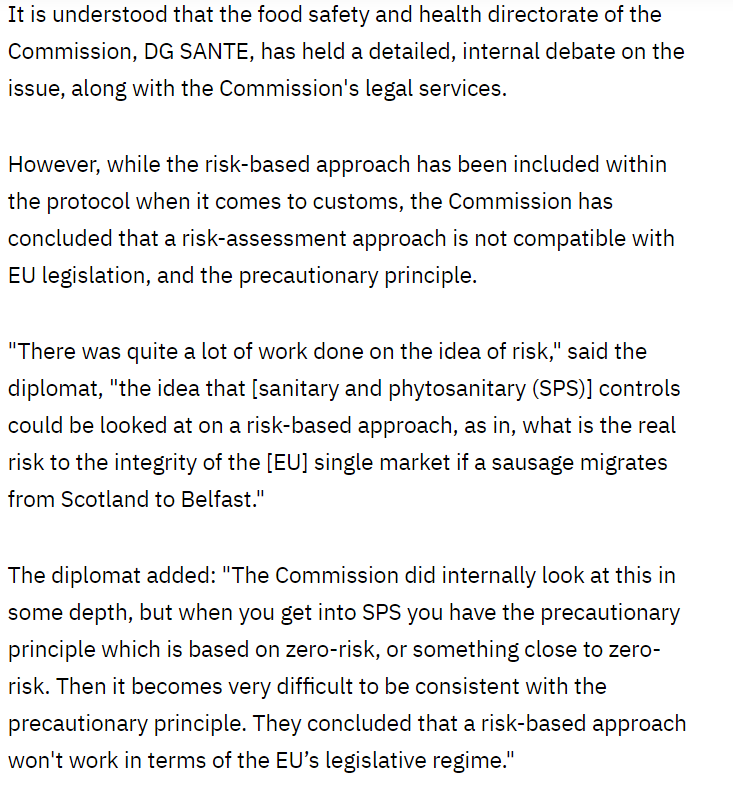
Interesting chart & I think relevant for the Scottish independence debate. Many on SNP side cite Irish example of being able to diversify away from trade with UK as path Scotland can follow. I think this chart highlights why that will be hard/unlikely. Short thread explaining 1/
https://twitter.com/jlpobrien/status/1362159860691972096
The chart highlights that the reduction in trade share with the UK didn't come from switching trade away from UK but from taking advantage of opportunities elsewhere & increasing trade overall as share of GNP. 2/
The problem is, Scotland has already had all these opportunities when UK was inside the EU. Yet it still traded predominantly with the UK. So these won't be new opportunities for Scotland as they were for Ireland when it joined EEC. 3/
Furthermore, taking advantage of these opportunities requires frictionless trade between Scotland & these countries. But it is very unlikely Scotland will have that, as will likely have to remain in customs union with UK otherwise there would be a hugely costly land border 4/
The Irish diversification in trade was also aided by the fact UK was also in the EEC/EU & therefore the land bridge was able to be utilised. Scotland won't have that advantage or option 5/
Finally, even if you discount the above (which I think unwise but I'm sure SNP will) this took place over the course of 30 to 50 years, when global & European trade was often booming. That highlights the scale of the bet & timeline of Scottish independence play. 6/
I know economic arguments won't win this debate & I know like Brexiteers the SNP will say sovereignty trumps economics. But while there must be an emotional argument for the Union, that doesn't mean economic facts should be ignored even if they won't win the day alone 7/ ENDS
• • •
Missing some Tweet in this thread? You can try to
force a refresh





